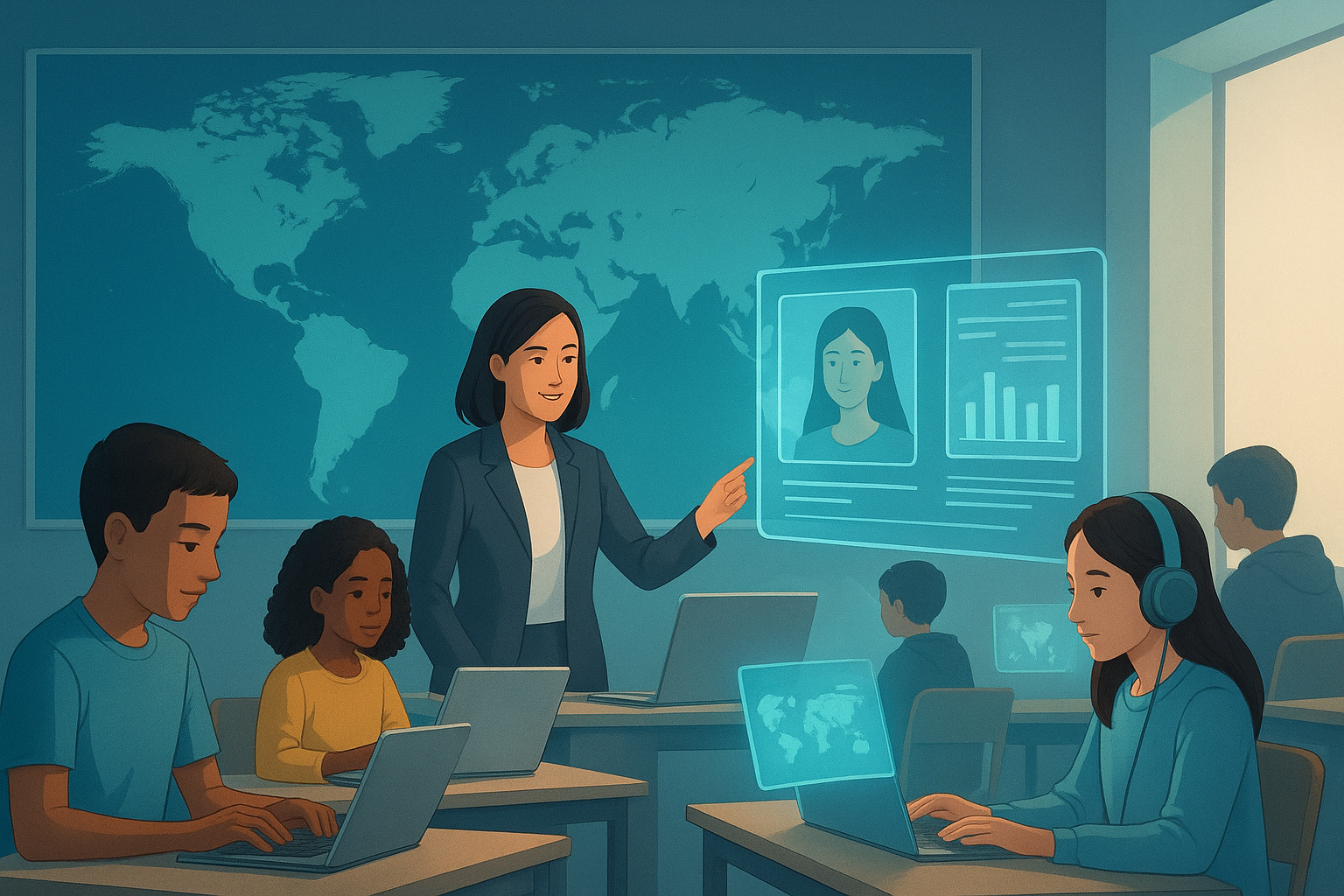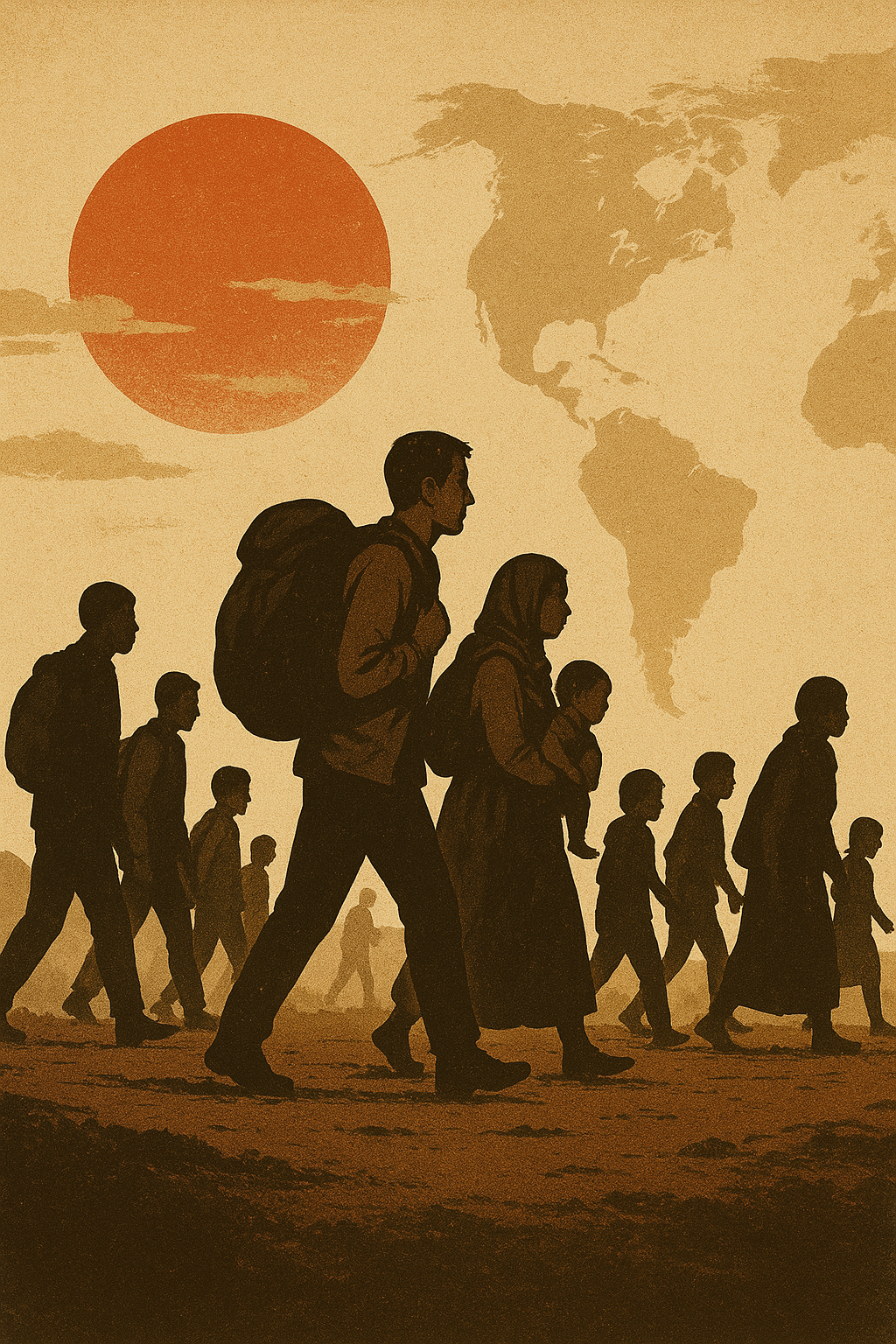The Classroom Revolution
Across the world, the way people learn is being transformed. From Nairobi to New York, from rural India to northern Europe, education is no longer confined to classrooms or textbooks. The digital revolution, accelerated by the COVID-19 pandemic, has reshaped the landscape of global learning in ways once unimaginable.
By 2025, education is at a crossroads. Nations are grappling with how to deliver quality learning in a world defined by rapid technological change, shifting job markets, and growing inequality. The question facing policymakers and educators alike: Can the global education system keep up with the pace of transformation?
The Pandemic Wake-Up Call
The COVID-19 crisis was a catalyst for digital education. At its peak, over 1.6 billion students were affected by school closures, forcing institutions to pivot to remote learning almost overnight.
What began as a desperate response has since evolved into a permanent shift. Online platforms, hybrid classrooms, and AI-powered tutoring systems are now central to modern education.
“Digital learning has gone from optional to essential,” says an education analyst from UNESCO. “The challenge now is ensuring it’s equitable and effective.”
Inequality in the Digital Age
While technology has expanded access to education, it has also deepened divides. In many developing countries, millions of students still lack internet access or digital devices. The digital divide—once a secondary concern—is now one of the biggest barriers to global learning equity.
In sub-Saharan Africa, for example, only 30% of schools have reliable internet connections. Rural students are disproportionately affected, often relying on printed materials or radio-based lessons.
UNESCO warns that if these gaps persist, the world risks creating a two-tier education system: one for the digitally connected and another for those left behind.
The Rise of EdTech
Education technology (EdTech) is booming. Startups and established companies alike are racing to redefine how people learn.
Platforms such as Coursera, Khan Academy, and Byju’s have brought world-class courses to millions. Meanwhile, universities are rethinking degree structures, offering modular, skill-based programs that align with industry needs.
Artificial intelligence is also revolutionizing how teachers teach and students learn. AI-driven platforms can adapt lessons to individual students, identifying strengths and weaknesses in real time. Virtual reality (VR) and augmented reality (AR) are turning classrooms into immersive learning environments—from simulated science labs to historical re-creations.
The Skills of Tomorrow
The shift is not just about technology—it’s about what people are learning. Automation, AI, and globalization are reshaping labor markets, rendering many traditional skills obsolete while creating demand for new ones.
The World Economic Forum estimates that 44% of workers’ skills will need updating by 2030. That means education must evolve from rote memorization toward creativity, critical thinking, and problem-solving.
“Learning how to learn is the ultimate skill of the 21st century,” says a senior researcher at the OECD.
Many schools are moving toward competency-based education, focusing on mastery rather than time spent in class. Lifelong learning is also becoming the norm, as workers continually retrain for new roles in emerging industries.
The Role of Governments and Global Institutions
As education becomes increasingly digital, governments face the challenge of regulation, infrastructure, and inclusion.
Some nations are leading the way. Estonia, for instance, integrated digital literacy into its national curriculum years ago. Rwanda has made tech-driven education a pillar of its development strategy.
International organizations are also stepping in. The UN’s Global Education Coalition is helping countries build digital learning ecosystems, while the World Bank is funding projects to expand broadband access in rural areas.
Still, progress is uneven. Many nations lack the funding, expertise, or political will to reform outdated education systems.
Beyond Degrees: A Shift in Mindset
Another quiet revolution is happening in how society values education. Employers are increasingly prioritizing skills over degrees. Major tech companies like Google, IBM, and Microsoft now offer certification programs that can replace traditional university pathways.
This democratization of learning is empowering—but also disruptive. Traditional universities face pressure to adapt or risk obsolescence.
Meanwhile, microlearning platforms and social media are creating new, informal learning spaces. YouTube, for instance, has become the world’s largest classroom, where millions of users learn everything from coding to cooking.
The Human Element
Amid all the innovation, experts caution against losing sight of the human connection at the heart of education. Technology can enhance learning, but it cannot replace empathy, mentorship, or community.
Teachers remain the cornerstone of effective education. The challenge is to empower them with the tools and training they need to thrive in a digital environment.
“The future of education isn’t just digital—it’s human-centered,” says a leading education futurist.
The Path Ahead
As the global education system evolves, one truth stands out: learning is no longer a phase of life—it’s a lifelong journey.
The next generation of learners will not only consume knowledge but create it. Their classrooms will be borderless, their teachers both human and digital, and their potential limitless—if the world can ensure that everyone, everywhere, has a fair chance to learn. 700 701 702 703 704 705 706 707 708 709 710 711 712 713 714 715 716 717 718 719 720 721 722 723 724 725 726 727 728 729 730 731 732 733 734 735 736 737 738 739 740 741 742 743 744 745 746 747 748 749 750 751 752 753 754 755 756 757 758 759 760 761 762 763 764 765 766 767 768 769 770 771 772 773 774 775 776 777 778 779 780 781 782 783 784 785 786 787 788 789 790 791 792 793 794 795 796 797 798 799 800 801 802 803 804 805 806 807 808 809 810 811 812 813 814 815 816 817 818 819 820 821 822



